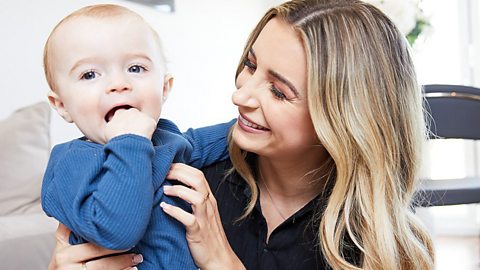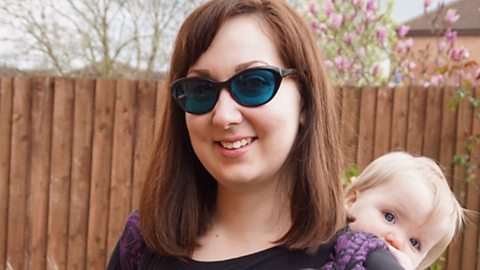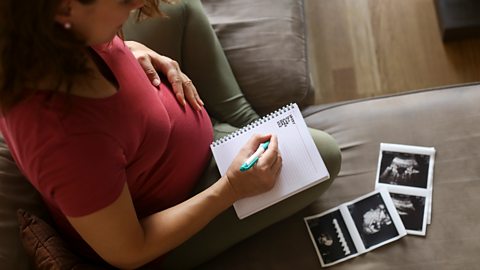Ross from Portrush, Northern Ireland developed hearing loss as a result of an illness at 21-years old, before he had children. Now, fifteen years later, he lives in Hertfordshire with his partner and two boys - a three-year-old and a ten-month-old.
He shares his memories, struggles, successes and hopes for the future as a self-confessed 'worrier'…
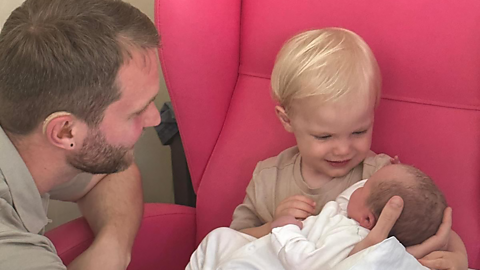
“It is a world I knew nothing about until I was 21”
Ross wasn’t born with hearing loss, it was something that became a part of his life as a young adult.
“I had bacterial meningitis when I was 21 and was in intensive care for about a week, leaving hospital with a hearing aid. The first couple of years after that I noticed my hearing getting worse.
“I have a severe level of loss, with a hearing threshold of around 95 decibels in certain frequencies. My partner could be drying her hair with a hair dryer at the foot of the bed and I'd be lying in bed not knowing the hair dryer was even turned on.
“My hearing loss was acquired in adult life and my speech and language development were unaffected, so I often feel people don’t understand how substantial my hearing loss is at times, based on my speech.”
Since his illness with meningitis, well over a decade ago, Ross has gone through a ‘hearing loss journey’ - from finding the right hearing aids to being diagnosed with otosclerosis, a condition that affects how sound vibrations travel through the ear and can be treated using surgery.
“Hearing loss has been something I’ve learned a lot about through trial and error, it is a world I knew nothing about until I was 21 and since then it has shaped a huge amount of who I am as an adult.”
“When we got home from hospital we couldn’t take our eyes off him as we were just so in love”
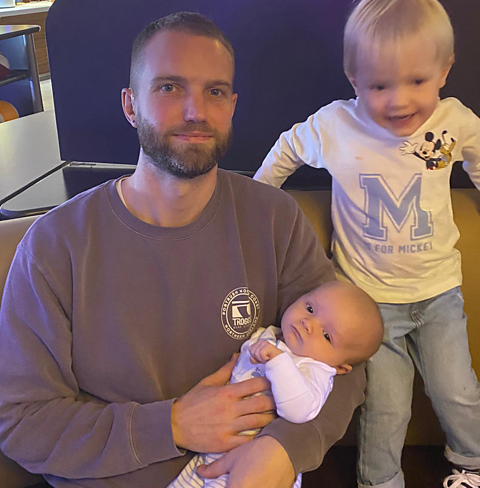
Fast forward eleven years and Ross was getting ready to have his first child with his partner, Sophie. Like anyone approaching parenthood, he felt nervous, anxious and excited ‘all rolled into one’, but he also had concerns around his hearing…
“Finley was born in 2020 during Covid, so when attending hospital appointments and even during his birth, I struggled to understand conversations, even more so than usual, due to everyone wearing masks. My partner usually had to repeat a lot of the information.
“When we got home from hospital we couldn’t take our eyes off him as we were just so in love, but that almost made me more anxious…
“Realising I have something so precious to look after, but when I take my hearing aids out I am unable to hear them cry.”
“I felt quite guilty, I suppose, or like I wasn’t pulling my weight as a parent, but I know that is far from how things were in practice.
“I often find myself apologising for being unable to hear, and I don't think there is any quick way around this. The knock in confidence is something I’m still adjusting to all these years later.”

“A lot of people with hearing loss will be in the ‘overthinker’ category.”
Despite his best efforts, Ross has often faced tricky situations as a parent…
“I often find going to places like soft play or large social spaces really challenging hearing-wise, so I’d usually opt for something less noisy, which is probably not as fun for them!
“One core memory I have with my dad and siblings growing up was going swimming, so there’s large parts of me that feel bad not doing these same things yet.
“Swimming pools are really hard to navigate. Do I take my hearing aids out? Do I keep them in and hope they don't get wet? If I take them out, where will I put them, and will they be safe?”
“Just so many questions, which no doubt feeds some level of constant anxiety. The boys are probably none the wiser to this, but I’d say most people with hearing loss will be in the ‘overthinker’ category.”
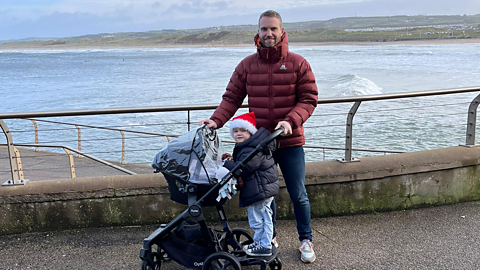
“You need to remember to look after each other, if you’re in a couple”
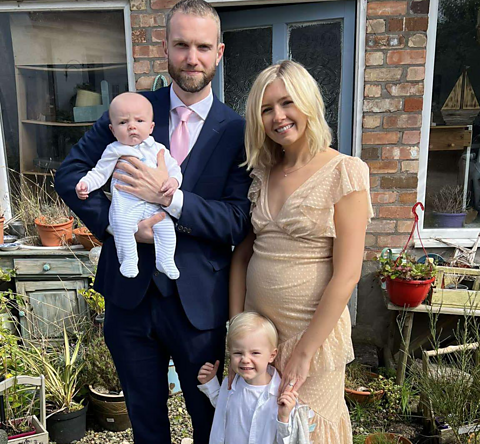
“I’m so thankful I have my partner to help and support me, and we are an excellent team. I don’t know what I’d do without her if I’m honest. She has been the best mum I could ever imagine.
“We tend to see things like nursery and doctor’s appointments as Sophie’s jobs, purely on the basis of me struggling to hear when having conversations in these environments.
“This is one thing I tend to dislike, as I find it can look like ‘typical dad making poor mum do all the work,’ but again that’s probably my own overthinking!
“I love being a dad, but I try to work to my strengths as best I can.”
“There is so much stress associated with babies that you need to remember to look after each other, if you’re in a couple. I quickly understood that doing small things to make Sophie's day easier, or to help her get a nap, will help me massively in the long run when there is a cry out at night or an unexpected trip to the doctor.
“Take the rest when an opportunity allows for it. Try not to be too hard on yourself and if someone offers to help don’t just say you’re fine – it’s amazing how much a 45-minute nap can help to put things back into perspective.”

“You're most likely doing better than you think”
Last year, Ross and Sophie had another boy, George. Ross felt more prepared the second time around, with fewer ‘unknowns’, but admits that there’s still lots to learn in terms of Finley’s development.
“I love reading with Finley, and he really loves his bedtime stories. This is one of our main routines, reading three or more books each night before bed.
“I was never much of a reader growing up, or even now, but I see huge value in the power of books, so want him to read as much as he can and enjoy doing so. We try to set a nice relaxing environment in bed and make it something exciting that he looks forward to.
And, ultimately, Ross is very positive about the future, both for his children and for himself, as a father.
“I like to think Finley and George will grow up being much more understanding of disability, which to me is a huge positive.
“There are times when I’m not sure how well I’m handling it, but I try to remember that it doesn't matter what anyone else thinks. Try to reassure yourself that you’re good enough and you're most likely doing so much better than you think.
“There’s a phrase: ‘only good parents worry if they are good parents or not’, and I do that a lot, so I must be doing something right!”
Where to go for help
For support and information on living with hearing loss, you can visit rnid.org.uk
They have lots if information on their website, including…

